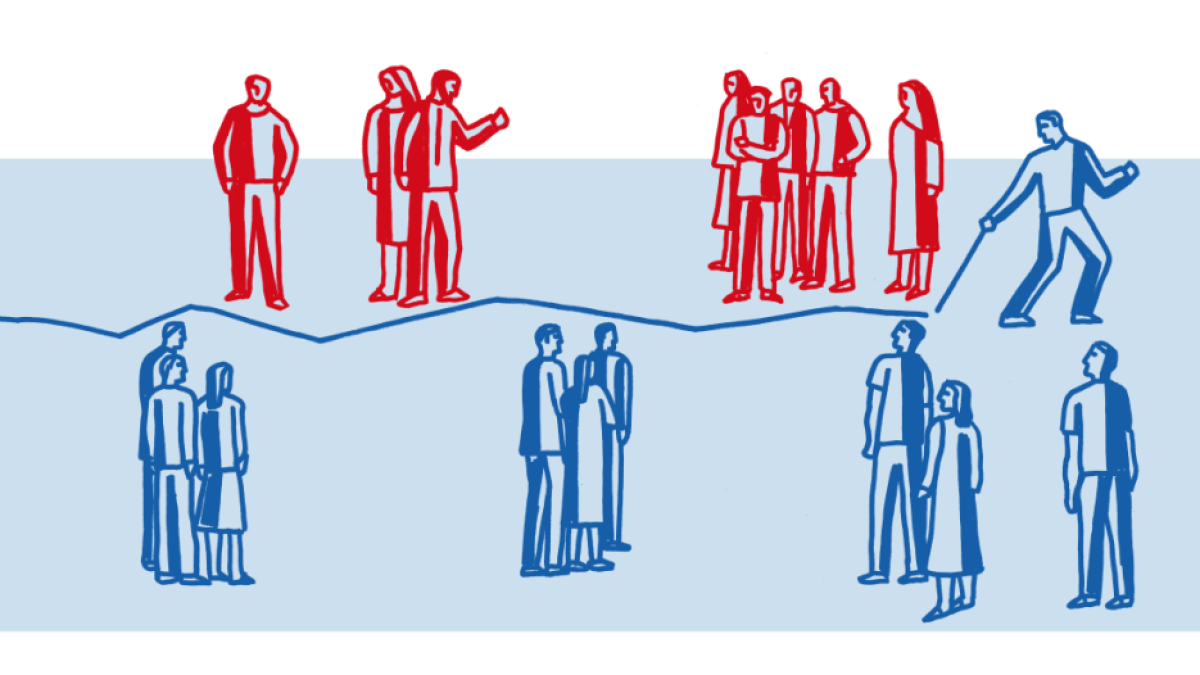Op-Ed: Israel isn’t, and will never be, an apartheid state

Reporting from Tel Aviv — The war against Israel has passed through three phases.
The first was the attempt to annihilate Israel by conventional means. It began with Israel’s birth in 1948, when Arab armies nearly captured Tel Aviv and Jerusalem, and ended in the 1973 Yom Kippur War, when Israeli forces came within artillery range of Cairo and Damascus.
The next stage, starting in the early 1970s, sought to cripple Israel through terror. Suicide bombers nearly paralyzed the country, but by 2005 they too were defeated.
That is when Israel’s enemies launched the third, and potentially most devastating, campaign: to isolate, delegitimize and sanction Israel into extinction. And a key weapon in this stage is the hugely destructive word “apartheid.”
Translated from Afrikaans, apartheid means “apart-hood.” It stemmed from the deeply held racist beliefs of South African whites who, in the half-century after World War II, imposed strict legal barriers between themselves and all black people. The segregation was total: separate restaurants, separate toilets and drinking fountains, separate houses, hospitals and schools. Blacks were denied the right to vote. The system resembled the American South under Jim Crow and outlived it by several decades. Thereafter, “apartheid” remained synonymous with undiluted racism, second only in hatefulness to Nazism.
Today, the word “apartheid” is wielded by Israel’s enemies to delegitimize the Jewish state. Adversaries point to the separation between Israeli settlers and Palestinian residents of the West Bank, separate Israeli and Palestinian roads, and separate schools, hospitals and legal systems. Although Israelis can elect their leaders, opponents of Israel say, Palestinians cannot. They claim that Israel has erected an “apartheid wall” between Jewish and Arab areas.
Yet none of this even remotely resembles apartheid. The vast majority of settlers and Palestinians choose to live apart because of cultural and historical differences, not segregation, though thousands of them do work side by side. The separate roads were created in response to terrorist attacks — not to segregate Palestinians but to save Jewish lives. And Israeli roads are used by Israeli Jews and Arabs alike. The separation of schools is, again, a cultural choice similar to that made by secular and Orthodox Jews and Muslim and Christian Palestinians. Many Palestinians, however, study in Israeli institutions such as Ariel University, located in a settlement. Thousands of Palestinians, many of them from Hamas-controlled Gaza, are treated at Israeli hospitals.
Israelis can indeed vote for their leaders, and so too can the Palestinians, but the Palestinian Authority has refused to hold elections for years. Palestinians are indeed tried under Israeli (originally British) military codes for security infractions, but other cases are referred to Palestinian courts. And even on security-related issues, Palestinians can appeal to Israel’s Supreme Court.
Israel has erected a security barrier — only a small section is actually walled — between it and most of the West Bank. But the barrier, a vital counter-terrorism tool, is not permanent and has been moved several times to accommodate Palestinian interests. It is no more an apartheid wall than the fence between the United States and Mexico.
The West Bank represents a complex historical, humanitarian and security situation that six Israeli prime ministers from both the left and right have tried to resolve. Unfortunately, Palestinian leaders turned down Israeli offers of statehood in 2000 and 2008, and have now abandoned peace talks in favor of reunification with Hamas. They aspire to create a Palestinian state in the West Bank and Gaza from which all Jews have been expelled. That is truly apartheid.
Outside of the West Bank, in Jerusalem and elsewhere in Israel, Jews and Arabs mix freely and increasingly live in the same neighborhoods. Arabs serve in Israel’s parliament, in its army and on its Supreme Court. And though discrimination in Israel , as in America, remains a scourge, there is no imposed segregation. Go to any Israeli mall, any restaurant or hospital, and you will see Arabs and Jews interacting.
This reality has not prevented Israel’s enemies from branding it with the apartheid label. They do so not to achieve a better peace arrangement with Israel but to isolate it internationally and to eliminate it through sanctions. We Jews remember how each attempt to obliterate us, whether in the Inquisition or during the Holocaust, was preceded by a campaign to delegitimize us. People who practice apartheid are easily considered illegitimate.
Israel is not an apartheid state and will not become one, even if the Palestinians continue to reject peace. However unwittingly, those who associate apartheid with Israel are aiding the third and perhaps ultimate stage in the effort to destroy the nation. They are also committing a grave injustice to the millions of American and South African blacks who were the victims of true apartheid.
Michael Oren, Israel’s ambassador to the United States from 2009 to 2013, is a senior fellow in international diplomacy at the Interdisciplinary Center Herzliya and a fellow at the Atlantic Council.
More to Read
A cure for the common opinion
Get thought-provoking perspectives with our weekly newsletter.
You may occasionally receive promotional content from the Los Angeles Times.










